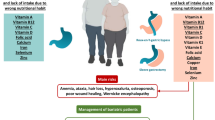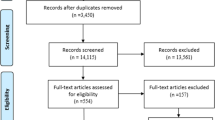Abstract
Background
Malnutrition is a frequent medical problem of cancer patients that negatively impacts their quality of life.
Methods
A multidisciplinary group of experts in Medical Oncology, Pharmacy, and Nutrition convened to discuss the management of the nutritional support in cancer patients.
Results
Of the 18 questions addressed, 9 focused on nutritional support, 5 were related to parenteral nutrition (PN) and 4 about home PN (HPN). The panel of experts recommends using nutritional screening routinely, at diagnosis and throughout the disease course, for detecting the risk of malnutrition and, if it is positive, to perform a complete nutritional assessment, to diagnose malnutrition. Currently, there are different screening tools and methods that allow us to detect nutritional risk. Based on the evidence and experience, the panel stated that PN is indicated mainly when it is not possible to use the digestive tract and/or oral feeding and/or enteral nutrition is not sufficient or possible. The nutritional needs of the cancer patients, except in those cases where individualized measures are required, should be considered similar to healthy individuals (25–30 kcal/kg/day). The panel considers that the nutritional monitoring of the cancer patient should be multidisciplinary and adapted to the characteristics of each center. Additionally, the objective of the HPN is to improve or maintain the nutritional status of a patient at home.
Conclusions
This document seeks to lay down a set of recommendations and to identify key issues that may be useful for the nutritional management of cancer patients.


Similar content being viewed by others
References
Gupta D, Lis CG, Granick J, Grutsch JF, Vashi PG, Lammersfeld CA. Malnutrition was associated with poor quality of life in colorectal cancer: a retrospective analysis. J Clin Epidemiol. 2006;59(7):704–9.
Rosania R, Chiapponi C, Malfertheiner P, Venerito M. Nutrition in patients with gastric cancer: an update. Gastrointest Tumors. 2016;2(4):178–87.
Escortell Sánchez R, Reig García-Galbis M. Nutrición enteral en el estado nutricional del cáncer; revisión sistemática. Nutr Hosp. 2015;32(4):1408–16.
Chow R, Bruera E, Chiu L, Chow S, Chiu N, Lam H, et al. Enteral and parenteral nutrition in cancer patients: a systematic review and meta-analysis. Ann Palliat Med. 2016;5(1):30–41.
Arends J, Bachmann P, Baracos V, Barthelemy N, Bertz H, Bozzetti F, et al. ESPEN guidelines on nutrition in cancer patients. Clin Nutr. 2017;36(1):11–48.
Segura A, Pardo J, Jara C, Zugazabeitia L, Carulla J, de Las Peñas R, et al. An epidemiological evaluation of the prevalence of malnutrition in Spanish patients with locally advanced or metastatic cancer. Clin Nutr. 2005;24(5):801–14.
Planas M, Álvarez-Hernández J, León-Sanz M, Celaya-Pérez S, Araujo K, García de Lorenzo A, PREDyCES® researchers. Prevalence of hospital malnutrition in cancer patients: a sub-analysis of the PREDyCES® study. Support Care Cancer. 2016;24(1):429–35.
Fearon K, Strasser F, Anker SD, Bosaeus I, Bruera E, Fainsinger RL, et al. Definition and classification of cancer cachexia: an international consensus. Lancet Oncol. 2011;12(5):489–95.
Mantovani G, Madeddu C. Cancer cachexia: medical management. Support Care Cancer. 2010;18(1):1–9.
Tisdale MJ. The ‘cancer cachectic factor’. Support Care Cancer. 2003;11(2):73–8.
Bachmann J, Heiligensetzer M, Krakowski-Roosen H, Büchler MW, Friess H, Martignoni ME. Cachexia worsens prognosis in patients with resectable pancreatic cancer. J Gastrointest Surg. 2008;12(7):1193–201.
Fearon KC, Baracos VE. Cachexia in pancreatic cancer: new treatment options and measures of success. HPB (Oxford). 2010;12(5):323–4.
Dewys WD, Begg C, Lavin PT, Band PR, Bennett JM, Bertino JR, et al. Prognostic effect of weight loss prior to chemotherapy in cancer patients. Eastern Cooperative Oncology Group. Am J Med. 1980;69(4):491–7.
Aoyagi T, Terracina KP, Raza A, Matsubara H, Takabe K. Cancer cachexia, mechanism and treatment. World J Gastrointest Oncol. 2015;7(4):17–29.
Valenzuela-Landaeta K, Rojas P, Basfi-fer K. Nutritional assessment for cancer patient. Nutr Hosp. 2012;27(2):516–23.
Hernandez J, Muñoz D, Planas M, Rodriguez I, Rovira P, Segui MA. Documento de consenso. Nutr Hosp. 2008;1(1):13–48. http://www.redalyc.org/pdf/3092/309226751005.pdf Accessed 29 August 2017.
August DA. Huhmann MB; American Society for Parenteral and Enteral Nutrition (A.S.P.E.N.) Board of Directors. A.S.P.E.N. clinical guidelines: nutrition support therapy during adult anticancer treatment and in hematopoietic cell transplantation. JPEN J Parenter Enter Nutr. 2009;33(5):472–500.
Joaquín Ortiz C. Análisis de las guías clínicas en Oncología. Nutr Hosp. 2016;33(Suppl 1):40–49. http://www.redalyc.org/html/3092/309245774006/ Accessed 29 August 2017.
Bozzetti F, von Meyenfeldt MF. Nutrition support in different clinical situations: nutrition support in cancer patients. In: Lubos S, editor. Basics in clinical nutrition. 4th ed. Prague: ESPEN, GALEN; 2011. p. 573–83.
Planas M, Fernández-Ortega JF, Abilés J, Spanish Society of Intensive Care Medicine and Coronary Units-Spanish Society of Parenteral and Enteral Nutrition (SEMICYUC-SENPE). Update. SEMICYUC-SENPE consensus: oncohematological patient. Med Intensiva. 2011;35(Supl 1):53–6.
Ströhle A, Zänker K, Hahn A. Nutrition in oncology: the case of micronutrients (review). Oncol Rep. 2010;24(4):815–28.
Arends J. Vitamin D in oncology. Forsch Komplementmed. 2011;18:176–84.
Zgaga L, Theodoratou E, Farrington SM, Din FV, Ooi LY, Glodzik D, et al. Plasma vitamin D concentration influences survival outcome after a diagnosis of colorectal cancer. J Clin Oncol. 2014;32(23):2430–9.
Bolland MJ, Grey A, Gamble GD, Reid IR. The effect of vitamin D supplementation on skeletal, vascular, or cancer outcomes: a trial sequential meta-analysis. Lancet Diabetes Endocrinol. 2014;4:307–20.
Autier P, Boniol M, Pizot C, Mullie P. Vitamin D status and ill health: a systematic review. Lancet Diabetes Endocrinol. 2014;1:76–89.
Khalid U, McGough C, Hackett C, Blake P, Harrington KJ, Khoo VS, et al. A modified inflammatory bowel disease questionnaire and the Vaizey Incontinence questionnaire are more sensitive measures of acute gastrointestinal toxicity during pelvic radiotherapy than RTOG grading. Int J Radiat Oncol Biol Phys. 2006;64(5):1432–41.
Giralt J, Regadera JP, Verges R, Romero J, de la Fuente I, Biete A, et al. Effects of probiotic Lactobacillus casei DN-114 001 in prevention of radiation-induced diarrhea: results from multicenter, randomized, placebo-controlled nutritional trial. Int J Radiat Oncol Biol Phys. 2008;71(4):1213–9.
Chitapanarux I, Chitapanarux T, Traisathit P, Kudumpee S, Tharavichitkul E, Lorvidhaya V. Randomized controlled trial of live lactobacillus acidophilus plus bifidobacterium bifidum in prophylaxis of diarrhea during radiotherapy in cervical cancer patients. Radiat Oncol. 2010;5(5):31.
Palma Milla S, Lisbona Catalan A, Gómez Candela C. Nutrición parenteral en el paciente oncológico. Revisión. Nutr Clín Med. 2015;9(2):173–87.
Yan X, Zhou FX, Lan T, Xu H, Yang XX, Xie CH, et al. Optimal postoperative nutrition support for patients with gastrointestinal malignancy: A systematic review and meta-analysis. Clin Nutr. 2017;36(3):710–21.
Bozzetti F, Arends J, Lundhom K, Micklewright A, Zurcher G, Muscaritoli M. ESPEN guidelines on parenteral nutrition: non-surgical oncology. Clin Nutr. 2009;28:445–54.
Derenski K, Catlin J, Allen L. Parenteral nutrition basics for the clinician caring for the adult patient. Nutr Clin Pract. 2016;31(5):578–95.
Ukleja A, Freeman KL, Gilbert K, Kochevar M, Kraft MD, Russell MK, et al. Task force on standards for nutrition support: adult hospitalized patients, and the American Society for Parenteral and Enteral Nutrition Board of Directors. Standards for nutrition support: adult hospitalized patients. Nutr Clin Pract. 2010;25(4):403–14.
Wanden-Berghe C, Sanz-Valero J, García de Lorenzo A, Martín-Peña G, Cervera M, Luengo LM, et al. Grupo CDC-Nut SENPE. Efectos adversos de la nutrición parenteral en pacientes oncológicos; revisión sistemática. Nutr Hosp. 2012;27(2):409–18.
Preiser JC, Schneider SM. ESPEN disease-specific guideline framework. Clin Nutr. 2011;30:549–52.
Amano K, Morita T, Baba M, Kawasaki M, Nakajima S, Uemura M, et al. Effect of nutritional support on terminally ill patients with cancer in a palliative care unit. Am J Hosp Palliat Care. 2013;30:730–3.
Lundholm K, Daneryd P, Bosaeus I, Korner U, Lindholm E. Palliative nutritional intervention in addition to cyclooxygenase and erythropoietin treatment for patients with malignant disease: effects on survival, metabolism, and founction. Cancer. 2004;100:1967–77.
Bozzetti F, Cozzaglio L, Biganzoli E, Chiavenna G, De Cicco M, Donati D, et al. Quality of life and length of survival in advanced cancer patients on home parenteral nutrition. Clin Nutr. 2002;21:281–8.
Prevost V, Grach M-C. Nutritional support and quality of life in cancer patients undergoing palliative care. Eur J Cancer Care. 2012;21:581–90.
Pironi L, Arends J, Bozzetti F, Cuerda C, Gillanders L, Jeppesen PB, et al. Home Artificial Nutrition and Chronic Intestinal Failure Special Interest Group of ESPEN. ESPEN guidelines on chronic intestinal failure in adults. Clin Nutr. 2016;35(2):247–307.
Pironi L, Arends J, Bozzetti F, Cuerda C, Gillanders L, Jeppesen PB, Home Artificial Nutrition and Chronic Intestinal Failure Special Interest Group of ESPEN, et al. Corrigendum to “ESPEN guidelines on chronic intestinal failure in adults”. Clin Nutr. 2017;36(2):619.
Cuerda Compés MC, Gómez Enterría P, Laborda González L, Moreno Villares JM, Ordóñez González J, Pedrón Giner C, et al. Guía de Nutrición Parenteral Domiciliaria en el Sistema Nacional de Salud. Ministerio de Sanidad y Política Social. Madrid, 2009. https://www.msssi.gob.es/profesionales/prestacionesSanitarias/publicaciones/GuiaNPD.htm Accessed 06 June 2017.
Cuerda Compés MC. Complicaciones de la nutrición parenteral domiciliaria. Nutr Hosp Suplementos. 2009;2(1):25–29. https://www.senpe.com/documentacion/grupos/estandarizacion/guia-de-npd.pdf Accessed 31 August 2017.
Staun M, Pironi L, Bozzetti F, Baxter J, Forbes A, Joly F, et al. ESPEN guidelines on parenteral nutrition: home parenteral nutrition (HPN) in adult patients. Clin Nutr. 2009;28:467–79.
Steiger E. Consensus statements regarding optimal management of home parenteral nutrition (HPN) access. JPEN. 2006;30:S94–5.
Centers for Disease Control and Prevention. Guidelines for the prevention of intravascular catheter-related infections. MMWR. 2002;51(No. RR-10):1–29.
Howard L, Ashley C. Management of complications in patients receiving home parenteral nutrition. Gastroenterology. 2003;124:1651–61.
ASPEN Board of Directors and the Standars for Specialized Nutrition Support Task Force. Standars for specialized nutrition support: home care patients. NCP. 2005;20:579–90.
Kovacevich DS, Marsha EO. Consideration for home nutrition support. New York: En ASPEN Nutrition Support Practice Manual; 2005. p. 371–407.
Gomez Enterria P, Laborda Gonzalez L. Preparación, métodos y pautas de administración de la nutrición parenteral domiciliaria. Seguimiento de los pacientes. Educación a pacientes y cuidadores. Nutr Hosp Suplementos. 2009;2(1):18–24. https://www.senpe.com/documentacion/grupos/estandarizacion/guia-de-npd.pdf Accessed 31 August 2017.
Alper DS, Haynes RB. EBHC pyramid 5.0 for accessing preappraised evidence and guinace. Evid Based Med. 2016;21(4):123–5.
DiCenso A, Bayley L, Haynes B. Accessing preappraised evidence: fine-tuning the 5S model into a 6S model. ACP J Club. 2009;151(3):2–3.
Acknowledgements
The authors wish to thank Baxter Ltd. for their collaboration with the logistics of the meetings and the assistance with the medical writing. It should be noted that Baxter Ltd. was not involved in the preparation of the recommendations nor did the company in any way influence the scientific consensus reached. Editorial assistance in the preparation of this manuscript was provided by Antonio Martinez (MD) of Ciencia y Deporte Ltd.
Author information
Authors and Affiliations
Corresponding author
Ethics declarations
Conflict of interest
The authors declare that they have no conflict of interest.
Ethical approval
This article does not contain any studies with human participants or animals performed by any of the authors.
Informed consent
Informed consent was not needed for this study.
Rights and permissions
About this article
Cite this article
Virizuela, J.A., Camblor-Álvarez, M., Luengo-Pérez, L.M. et al. Nutritional support and parenteral nutrition in cancer patients: an expert consensus report. Clin Transl Oncol 20, 619–629 (2018). https://doi.org/10.1007/s12094-017-1757-4
Received:
Accepted:
Published:
Issue Date:
DOI: https://doi.org/10.1007/s12094-017-1757-4




